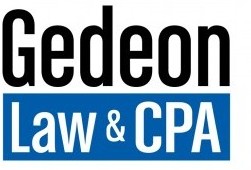Are you an American married to an Australian who owns an Australian corporation? Are you a Canadian living in the U.S. who has family back in Canada that owns a Canadian corporation? Did you receive shares of a Canadian corporation through an estate freeze?
If so, then you will want to read this article.
Why? Because you’ll be surprised to learn that these situations could result in the need to file a Form 5471 with your U.S. tax return. A Form 5471 is filed by a U.S. person to report an interest in a foreign corporation. Failing to file a Form 5471 could subject you to a penalty of at least $10,000 per year per foreign corporation.
This will be our first article in a series of articles that will attempt to demystify the complex rules surrounding when a U.S. person is considered to have an interest in a foreign corporation.
In this particular article, we will focus on who is considered a Category 4 filer for purposes of filing a Form 5471. Specifically, we’ll explore the confusing “constructive ownership/attribution rules” that apply to establishing when a U.S. person is a Category 4 filer, which has the most extensive reporting requirement because the filer must provide the IRS with essentially a complete set of financial statements for the foreign corporation.
Let’s start with the basics. A Category 4 filer is a U.S. person who controls a foreign corporation. The U.S. defines control as owning more than 50% of the voting power or shares of a foreign corporation.
When it comes to analyzing direct ownership in a foreign corporation, this rule seems rather straightforward. But the IRS doesn’t just apply this rule to only direct ownership. Instead, for purposes of analyzing the Category 4 filing requirement, the IRS applies constructive ownership of a foreign corporations stock. Constructive ownership means that a U.S. person is considered to own stock in a foreign corporation that is owned by other related parties. In a nutshell, the IRS pretends you own stock even though you don’t actually own it.
What related parties do the constructive ownership rules apply to for purposes of a Category 4 filer?
In determining if a U.S. person meets the control test of a Category 4 filer, you need to consider the stock owned by your spouse, children, grandchildren and parents. On the bright side, you’ll notice there is no attribution from siblings or grandparents.
But wait. My spouse or parent is only an Australian or a Canadian. They are not U.S. residents. Surely their ownership interest is not attributed to me you say. Well, guess again. For ascertaining a Category 4 filer, the IRS does not apply an exemption to the attribution rules for stock owned by nonresident aliens. Consider your Australian parent owns 100% of the shares in an Australian holding company. As a result of the Category 4 attribution rules, you are treated as the owner of any shares that your parent owns. Hence, you are treated as owning 100% of the shares in the Australian holding company.
The news is not all bad. You’ll be happy to know that the IRS has created exceptions to filing under Category 4 in certain situations.
The first exception is when more than one U.S. person is required to file as a Category 4 filer with respect to the same foreign corporation. In cases such as these, a short form disclosure can be filed provided the Form 5471 filing requirement is satisfied by one of the other U.S. person’s required to file the form. For example, assume an American spouse and American child of a Canadian reside in Canada and the Canadian owns a Canadian corporation. Provided the American spouse files the Form 5471, the American child would be eligible to file a short form disclosure in lieu of the Form 5471.
The second exception to filing a Form 5471 as a Category 4 filer applies to situations where (1) a U.S. person is considered to be in control of a foreign corporation solely by reason of constructive ownership from other U.S. persons, (2) the U.S. person has no direct ownership interest in the foreign corporation, and (3) the other U.S. person will file a Form 5471 that includes all the information required under Category 4. Like the first exception, this exception requires filing a short form disclosure in lieu of the Form 5471.
The last exception applies to situations where control of a foreign corporation is attributed solely because of constructive ownership from non-U.S. persons. Specifically, a U.S. person is exempt from filing a Form 5471 when control of a foreign corporation is attributed solely from foreign family members. There is, however, a catch. This exemption only applies when the U.S. person has no direct or indirect interest in the foreign corporation. Let’s look at an example. Suzy is an American citizen living in Canada. Suzy is married to David, a Canadian citizen who owns 100% of a Canadian medical corporation through voting common shares. As part of his Canadian tax planning, David granted Suzy a separate class of non-voting Class S shares in the medical corporation entitled to discretionary dividends. Since Suzy is considered to have 100% control of the corporation by virtue of the constructive ownership of David’s common shares and Suzy has a direct interest in the corporation, she is not exempt from filing a Form 5471 as a Category 4 filer.
As always, dealing with U.S. foreign compliance filings can be tricky. If you are an American, Canadian or Australian who has either a direct interest or a possible constructive ownership interest in a foreign corporation, contact Gedeon Law & CPA today for assistance with your U.S. foreign compliance filings.




